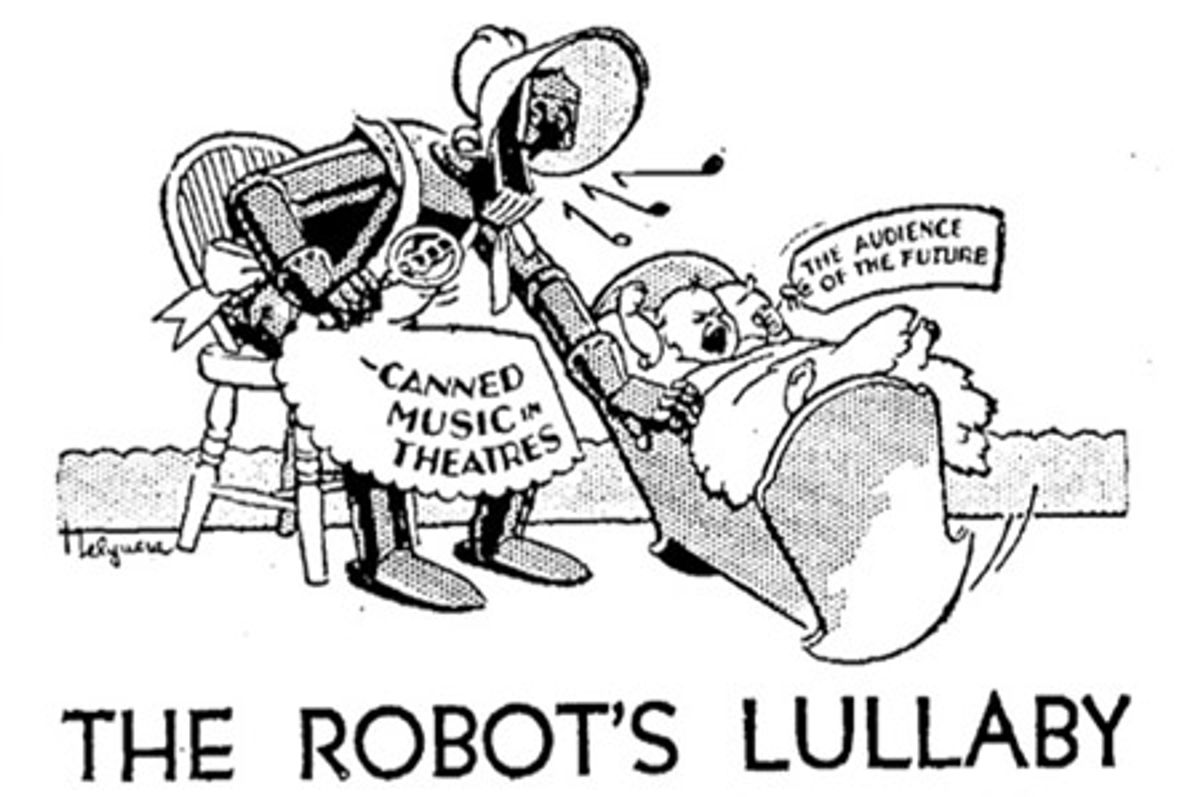I lost my job to a robot once, but I certainly wasn't the first person to have this happen to them. Back in the 1930s, the invention of synchronized sound rendered live musicians who played accompaniment at movie theaters as superfluous. The American Federation of Musicians wasn't about to take the loss of their livelihood lying down, so they orchestrated a PR campaign to try to stop the evil music robots from taking over.
It didn't work.
According to these ads, robotic musicians (i.e. pre-recorded) music can never be the same, since "music is an emotional art, a form of social intercourse, and hence dependent upon human contact." I won't deny that they've got a point (which is why we still have orchestras instead of symphony halls full of speakers), and reading it today, it almost makes you want to agree with the point they were making eighty years ago:
The time is coming fast when the only living thing around a motion picture house will be the person who sells you your ticket. Everything else will be mechanical. Canned drama, canned music, canned vaudeville. We think the public will tire of mechanical music and will want the real thing. We are not against scientific development of any kind, but it must not come at the expense of art. We are not opposing industrial progress. We are not even opposing mechanical music except where it is used as a profiteering instrument for artistic debasement.
Ouch.
What a disappointment we'd be to all of these musicians from the 1930s, but opposing industrial progress and scientific development in any form is usually a lost cause, even if the reasons behind it do appeal to the soul:
Whether or not robots can demonstrate creativity is still a contested topic: robots can certainly demonstrate evolved randomness, even themed pseudo-randomness in a musical setting, and whether you want to call that creativity is (to some extent) semantics. I'm reasonably sure that at some point, robots will be able to pass a creative Turing test (whether it's musical or otherwise artistic), and then we'll have to decide whether that means that they're creative enough to be thought of as maybe, slightly, just a little bit human.
Evan Ackerman is a senior editor at IEEE Spectrum. Since 2007, he has written over 6,000 articles on robotics and technology. He has a degree in Martian geology and is excellent at playing bagpipes.






